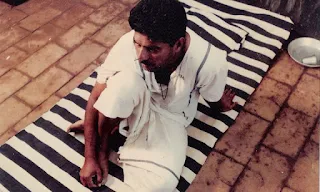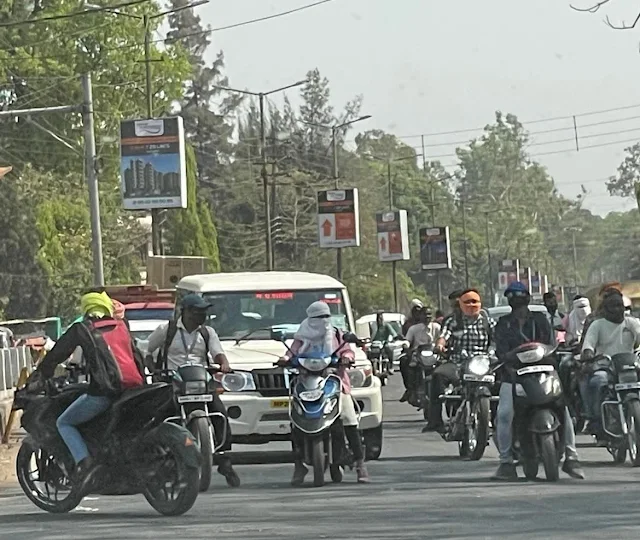A Billion Colour Story (2016)
 History tells us that India used to be a welcoming land to any weary sojourner. It is proud of being the only country in the world where its people did not persecute anyone based on physical appearances or personal convictions. It stands proud of not harassing Jews. It ushered in visitors with such warmth, sharing their knowledge in the hope of finding meanings of life, so much so that they decided to overstay their welcome and so much as a rule over the roost.
History tells us that India used to be a welcoming land to any weary sojourner. It is proud of being the only country in the world where its people did not persecute anyone based on physical appearances or personal convictions. It stands proud of not harassing Jews. It ushered in visitors with such warmth, sharing their knowledge in the hope of finding meanings of life, so much so that they decided to overstay their welcome and so much as a rule over the roost.
Did the last of the visitors leave such a scar of conquest that can never heal? To ease their administration, the British, initially a band of looters in the form of East India Company and then later for the Crown, divided and subdivided their subjects by breed, colour, occupation, religion, etc., drilled in the idea that they were different. They mastered the craft of 'divide and rule' to its finest.
The divide became so pronounced that it carved out the limbs out of the tripartite sub-continent. The conquerors were happy to leave with such an arrangement that became cumbersome. It fitted very well with their intentions to destabilise the region by instigating brotherly skirmishes. As the Cold War was developing, political influence over the area was maintained. Destabilisation ensured the petroleum supply was kept in check with British aspirations.
The world was achanging. Ideas were spreading like wildfire. People became loyal not to the flag but to a belief of an invisible pink unicorn that was an oxymoron, but who dare ask. The representation transcended all rational thought and called for blood. A once peaceful existence has turned hostile. How do you expect the hosts to take things lying down? An eye for an eye, and I will instead be blind than do the blasphemous something, says one party. A tit for tat says the other in reply. The combatants are mired so deep in muck that they had forgotten who drew first blood and for what they are fighting for.
We encounter this award-winning film with this background that showcases an eternally optimistic trained in Australia movie-making couple who believes that the old India is very much alive. Despite the adverse publicity churned daily on the media, they believe that a billion colours that beautify India are there for taking. Reality sinks when they discover that their mixed marriage (Hindu and Muslim) is a big issue in modern India. They find dead end at every turn as they struggle to complete their movie. In the midst of all this is their son, Hari Aziz, trying to find his place in society.



 Being in prison cuts us off from our desire to be free. It put us into a routine, which hopefully will make us reassess our existence. The routine nature of life there hopes to put us back into the loop of living purposefully.
Being in prison cuts us off from our desire to be free. It put us into a routine, which hopefully will make us reassess our existence. The routine nature of life there hopes to put us back into the loop of living purposefully. One day, whilst tending his garden, whistling, Basheer hears a feminine voice from the other side of the tall prison wall. What started as time-pass slowly evolved from a non-essential banter to possibly something romantic. It came to a time when that was the most looked forward moment of the day!
One day, whilst tending his garden, whistling, Basheer hears a feminine voice from the other side of the tall prison wall. What started as time-pass slowly evolved from a non-essential banter to possibly something romantic. It came to a time when that was the most looked forward moment of the day!





 History tells us that India used to be a welcoming land to any weary sojourner. It is proud of being the only country in the world where its people did not persecute anyone based on physical appearances or personal convictions. It stands proud of not harassing Jews. It ushered in visitors with such warmth, sharing their knowledge in the hope of finding meanings of life, so much so that they decided to overstay their welcome and so much as a rule over the roost.
History tells us that India used to be a welcoming land to any weary sojourner. It is proud of being the only country in the world where its people did not persecute anyone based on physical appearances or personal convictions. It stands proud of not harassing Jews. It ushered in visitors with such warmth, sharing their knowledge in the hope of finding meanings of life, so much so that they decided to overstay their welcome and so much as a rule over the roost.


 They say this film is based on the blockbuster 'Forrest Gump', but the only similarity to the Hollywood counterpart is that the story goes through certain landmark events that are deemed necessary. For a starter, there is Partition and Nehru's death.
They say this film is based on the blockbuster 'Forrest Gump', but the only similarity to the Hollywood counterpart is that the story goes through certain landmark events that are deemed necessary. For a starter, there is Partition and Nehru's death.


 It is not a documentary, so do not expect factual accuracy. It is quite alright if you see the screen Jhansi Rani letting her hair down, getting into the groove and dancing with the villagers. At least they got the Mahishashura Mardini version of Queen Laxmibai right. Her unabated rage in fighting the tyranny of British can best be compared to the unstoppable fighting machine of Durga overpowering the Buffalo Demon of Mahishashura seen in the Mysore tradition. Living true to the feminine force of Nature which gives life and takes, Jhansi Rani has remained the Indian icon that spread nationalism and empowered women the world over, at least in the Indian diaspora.
It is not a documentary, so do not expect factual accuracy. It is quite alright if you see the screen Jhansi Rani letting her hair down, getting into the groove and dancing with the villagers. At least they got the Mahishashura Mardini version of Queen Laxmibai right. Her unabated rage in fighting the tyranny of British can best be compared to the unstoppable fighting machine of Durga overpowering the Buffalo Demon of Mahishashura seen in the Mysore tradition. Living true to the feminine force of Nature which gives life and takes, Jhansi Rani has remained the Indian icon that spread nationalism and empowered women the world over, at least in the Indian diaspora.
